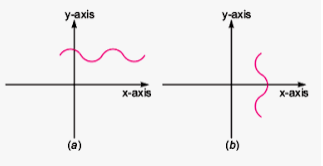If getting a '5' or a '6' in the throw of an unbiased die is a 'success' and the random variable 'X' denotes the number of successes in six throws of the die, find PX[X≥4]Solution in Punjabi
Step by step video & image solution for If getting a '5' or a '6' in the throw of an unbiased die is a 'success' and the random variable 'X' denotes the number of successes in six throws of the die, find P_X[Xge4] by Maths experts to help you in doubts & scoring excellent marks in Class 12 exams.
Updated on:21/07/2023Topper's Solved these Questions
Similar Questions
Compute P(A∣B),if P(B)=0.5 and P(A∩B)=0.32
View SolutionWrite the element a12 of the matrix A=[aij]2×2, whose elements are given by : aij=e2ixsinjx
View SolutionWhich one of the following graph represents the function of x? Why?

View SolutionIf getting 5 or 6 in a throw of an unbiased die is a success and the random variable X denotes the number of successes in six throws of the die, find P(X≥4) .
View SolutionIn eight throws of a die 5 or 6 is considered a success, find the mean number of successes and the standard deviation.
View SolutionA die is throws 5 times . If getting an odd number is a success , find the probability of getting at least 4 successes.
View SolutionShyam throws a die thrice . Getting 1 or 6 is taken as success the mean of number of success is
View SolutionProbability of throwing a 5 only on the first of two successive throws of an ordinary die is
View SolutionIn 16 throws of a die getting an even number is called a success then the variance of the success is
View SolutionIn 5 throws of a die getting 1 or 2 is a success . Then mean number of success is ………. .
View SolutionFind the probability of :
(i) getting 5 exactly twice in 7 throws of a die
(ii) throwing at most 2 sixes in 6 throws of a single die.
View SolutionIf getting a '5' or a '6' in the throw of an unbiased die is a 'success' and the random variable 'X' denotes the number of succeses in six throws of the die, find PX[X=4,5,6].
View SolutionFind the variance of the number obtained on a throw of an unbiased die.
View SolutionFind the variance of the number obtained on a throw of an unbiased die.
View SolutionFind the variance of the number obtained on a throw of an unbiased die.
View SolutionFind the variance of the number obtained on a throw of an unbiased die.
View Solution
